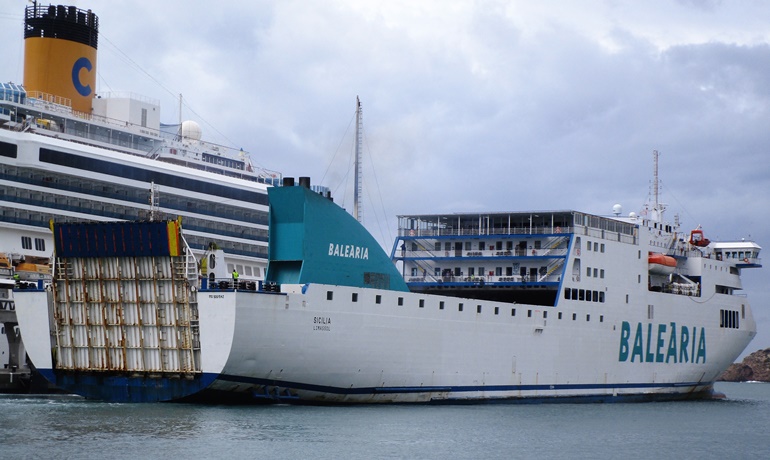Baleària Upgrading Five Ferries to Run on LNG
Spanish ferry operator Baleària is to invest EUR 60 million (USD 70.3 million) to retrofit five of its ferries to run on liquefied natural gas (LNG) in an effort to cut pollution from ships.
Namely, the ferries Nápoles, Abel Matutes, Sicilia, Bahama Mama and Martín i Soler are scheduled to undergo the upgrades over the next two years.
Baleària said that the of LNG in these five vessels is expected to reduce more than 45,000 tons of CO2 annually, 4,400 tons of nitrogen oxide (NOx) and eliminate sulfur and particulate emissions completely.
Nápoles, which would be the first to be fitted with gas propulsion, is to start the upgrade in the winter 2018.
Additionally, Baleària is studying two other LNG projects and is building two smart ships at the Visentini shipyard in Italy, the first of which will be operational as of February 2019.
The company plans to have nine ships running on LNG in three years, Adolfo Utor, President of Baleària, informed.
Kilde: World Maritime News
Spanish ferry operator Baleària is to invest EUR 60 million (USD 70.3 million) to retrofit five of its ferries to run on liquefied natural gas (LNG) in an effort to cut pollution from ships.
Namely, the ferries Nápoles, Abel Matutes, Sicilia, Bahama Mama and Martín i Soler are scheduled to undergo the upgrades over the next two years.
Baleària said that the of LNG in these five vessels is expected to reduce more than 45,000 tons of CO2 annually, 4,400 tons of nitrogen oxide (NOx) and eliminate sulfur and particulate emissions completely.
Nápoles, which would be the first to be fitted with gas propulsion, is to start the upgrade in the winter 2018.
Additionally, Baleària is studying two other LNG projects and is building two smart ships at the Visentini shipyard in Italy, the first of which will be operational as of February 2019.
The company plans to have nine ships running on LNG in three years, Adolfo Utor, President of Baleària, informed.
Kilde: World Maritime News



